Table of contents
Do you know what natural foods are?
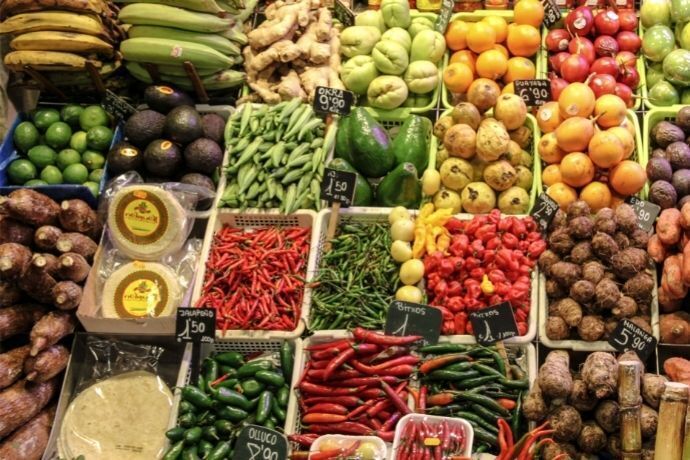
Foods are commonly divided into healthy and junk food. However, the division of food groups goes much further and has some subtypes.
In principle, the classification of a natural product includes fruits, vegetables, and legumes picked directly from the tree, without going through industrial "treatments". It is everything that is offered by mother nature in its purest form.
An example of the transition of food groups can be seen with corn. In its raw format, i.e., the cob harvested directly from the corn field is a natural food. However, when it undergoes processing, it is presented in cans and even becomes another product, such as snacks.
Read on and understand what makes a food be considered natural, organic, or processed.
Understanding more about natural foods
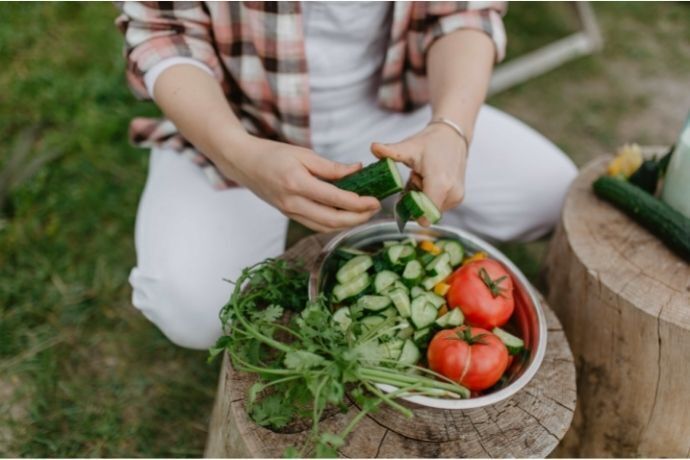
More and more we see people concerned about the amount of fat, sugar and calories in a food. But we almost never question whether a product is really natural or not. Here's how to differentiate between each food group.
Types of food
According to the Food Guide for the Brazilian Population, food can be divided into 4 categories, separated by the degree of processing each food undergoes.
The type of processing is crucial in determining the nutrient profile and the taste of the food we are going to consume. In general, it can be said that the more processed the food, the lower the nutritional value and the chance that the product will be full of chemical compounds is enormous.
Therefore, when we learn to differentiate between each group, we gain the knowledge and the power to choose the best eating habits.
Natural foods
Natural, or in natura, foods are the freshest. They are obtained directly from plants or animals and do not undergo any treatment that changes their form or composition.
Therefore, they are sold exactly as they were harvested from nature, and are usually found in fairs, grocery stores, and horticultural stores. This category includes vegetables, greens, fruits, tubers, nuts, and walnuts (still in their shells). Fresh meat and eggs also fall into this category.
Minimally Processed Foods
The minimally processed foods group includes natural products that have undergone small processes that do not alter them. It is considered the second healthiest category, a real shortcut to saving time in the kitchen.
Here, the food may undergo cleaning, removal of inedible parts, segmentation, grinding, drying, fermentation, pasteurization, cooling, or freezing. The processes do not involve the addition of salt, sugar, oils, or fats.
Minimal processing makes food more accessible, safe, and convenient. We find in this group: peeled nuts, grains, teas, coffee, and tap and bottled water. In addition, washed, cut and frozen vegetables, fruits, vegetables, roots, and tubers.
Culinary and industrial ingredients
The group of culinary and industrial ingredients is made up of substances that are extracted from nature and then purified by some kind of processing.
Among the processes to which the food is subjected, we find milling, refining, hydrogenation, hydrolysis, and the use of enzymes and additives. The main difference with minimally processed foods is that here there is a radical change from the original food.
Moreover, these products are not consumed alone, but are used for various preparations such as broths, soups, salads, pies, breads, cakes, sweets, and preserves. They are also key ingredients in the production of ultra-processed foods.
Starches, flours, oils, fats, salts, sweeteners, fructose, corn syrup, lactose, and soy protein are the best-known representatives of this category.
Processed Foods
Processed foods are those in which salt, sugar, or another substance is added to natural foods to make them more durable and tasty. They are usually eaten as side dishes.
The most popular processed foods are canned foods such as carrots, cucumbers, peas, and onions. Tomato extracts, candied and syrup fruits, cured meats, canned fish (sardines and tuna), cheeses, and some simpler types of breads also stand out.
Another example is hearts of palm, which must be kept in acidified brine with preservatives, and must also be sterilized to eliminate the spores of botulism bacteria, a condition that can be fatal.
Ultra-processed foods
The group of ultra-processed foods includes ready-to-eat products. They have an industrial recipe, made with substances extracted from food (oils, fats, sugar, starch, proteins) and food derivatives (hydrogenated fats and modified starch).
In addition, they often contain compounds synthesized in laboratories, based on organic materials such as petroleum and coal. These are the colorings, flavorings, flavor enhancers, and additives used to make the product more attractive and to give it a longer shelf life.
The techniques used here include extrusion, molding, and pre-processing (frying or baking). In this category are most breads, cereal bars, cookies, sausage, cakes, ice cream, and soft drinks.
Frozen ready meals such as pasta, sausages, potato French fries, nuggets, dehydrated soups, infant formula, and baby food are also ultra-processed.
Why did food begin to be processed?
Initially, the main purpose of food processing was to preserve food as long as possible, because periods of scarcity with harsh winters and droughts were becoming more and more frequent.
The first ways to preserve food were fire, ice (in colder regions), and the heat of the sun, but over time other techniques were developed, such as pasteurization, freeze-drying (a type of dehydration that uses cold as a tool), and the addition of preservatives.
Nowadays, food processing goes beyond preservation and has other objectives, such as convenience and pleasure through the consumption of a food.
Benefits of natural foods
Natural foods have numerous benefits, among them:
Rich in nutrients: Because they are fresh, they preserve the vitamins and minerals that are naturally found in their composition. In addition, they are sources of antioxidants and other essential nutrients for the proper functioning of the body;
Healthier: In addition, legumes such as chickpeas, beans, soybeans, and peas have plenty of fiber, contributing to digestion and intestinal performance.
Hydration: When we eat fiber foods, we feel more thirsty and our water consumption increases. This favors the hydration of the body, eliminates toxins, and even prevents the terrible kidney stones.
Hazards of processed and industrialized foods
Ultra-processed foods can be very bad for your health due to their high concentration of chemical additives, fat, sugar, and salt, among others. Some compounds, such as trans fat, have been associated with increased risk of heart attack and stroke.
A study by the Pan American Health Organization (PAHO) conducted between 2000 and 2013 in 13 Latin American countries showed that the sale of ultra-processed products increased significantly, and the number of overweight or obese patients also grew. Likewise, a large increase in the average body weight of the region's inhabitants can be observed.
Furthermore, the World Health Organization (WHO) indicates that one of the main factors for the development of non-communicable diseases is the high consumption of food with few nutrients and high energy value, the ultra-processed.
Which foods to prioritize for healthy eating?
The Food Guide for the Brazilian Population brings great suggestions for maintaining a healthy and balanced diet. Check it out:
- Use plenty of natural and minimally processed foods, they will be the basis of your diet. If you can, prefer organic ones;
- Oils, fats, salt, and sugar should be in small amounts, only for seasoning and flavoring culinary preparations;
- Decrease your consumption of processed foods and use them sparingly in recipes;
- Avoid ultra-processed foods as much as possible.
What foods to avoid?
The main recommendation is to avoid ultra-processed foods and decrease the intake of processed foods. Many times, we stop consuming more natural products, such as oil and sugar, to replace them with industrialized products with names and ingredients that we can't even pronounce right.
You have to be careful with foods that are sold as "healthy", but are actually filled with chemicals that are bad for your health. If the list of ingredients is apparently in Greek, forget it. It's an ultra-processed food in disguise. So the golden tip is to read the label to determine whether the food is good or not.
Impacts of processed foods
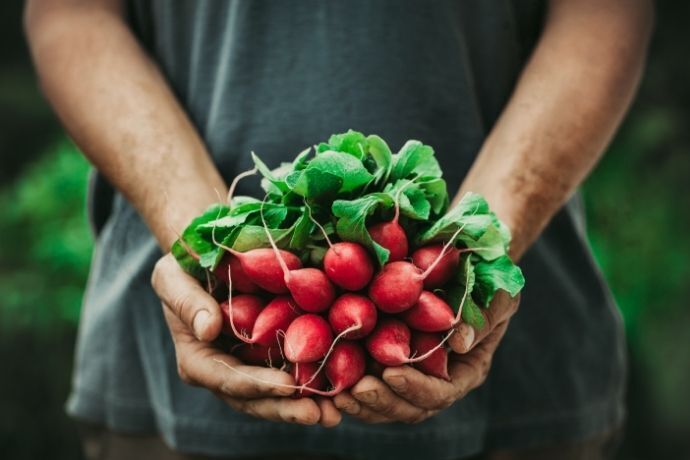
According to data from the Food Guide for the Brazilian Population, processed foods can have negative impacts that go beyond health and nutrition issues. Find out all about it below.
Impacts on the food market
The manufacturing and exaggerated consumption of processed foods has had a very negative impact on the food market. This is because, since industrialization, the production of this sector has undergone a major transformation.
The emergence of new processing technologies and the increasing lack of time have favored the creation of ultra-processed foods, foods that arrive practically ready to eat.
Faced with this new scenario, the industry has changed its way of producing food, no longer focusing only on food preservation and safety, but rather on appearance, flavor, and convenience.
Impacts on culture
Culture is often very impacted and influenced by the processed food industry, because brands create extremely attractive packaging and labels that catch the eye and set trends.
The most famous companies invest millions in advertising campaigns to launch products that theoretically promote inclusion, diversity, and a sense of belonging to a modern, superior community.
In light of this, traditional and healthier food cultures come to be seen as outdated and boring, especially by young people.
Impacts on social life
The social impact is one of the greatest brought about by the processed food industry, since they are designed to be consumed without the need for preparation, anytime and anywhere.
In this way, they convey the idea that food preparation and the conviviality around the table during the meal are not important, since these products are often eaten without a fixed time and, for many times, the person eats alone in the middle of the rush.
Besides, as the division of tasks is not a common practice in Brazilian families, the proposal of a meal that does not give any work worked perfectly.
Impacts on the environment
The impacts of the processed food industry on the environment are enormous. A large part of the production, distribution, and marketing processes are harmful to nature and consequently threaten the sustainability of the planet as a whole.
The most visible part of the damage caused by companies is in the piles of improperly discarded packaging, since most of it is not biodegradable and stays polluting the environment for thousands of years.
In addition, there is a great expenditure of water and energy, not to mention the emission of pollutants, which is colossal. Thus, there is a great degradation of nature, with a reduction of biodiversity and water reserves. The degree of compromise of natural resources is enormous.
Further information about natural foods
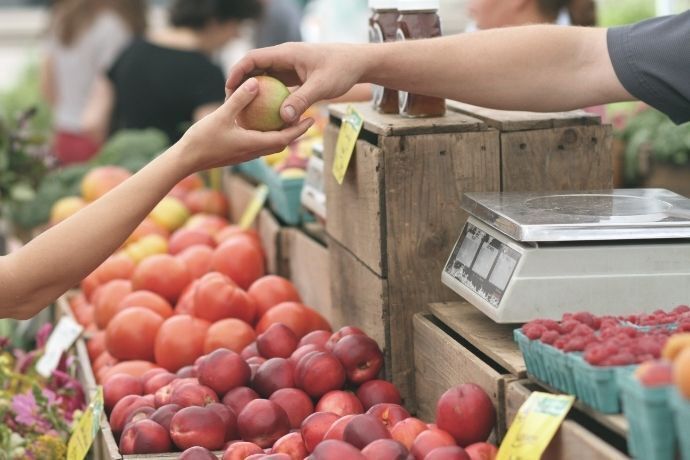
Natural foods come from nature, as the name implies, and are therefore healthier. They offer many nutrients, vibrant colors, and unique flavors. Learn more about their importance below.
Is natural food the same thing as organic food?
Many people believe that natural and organic food are the same thing, but know that the terms define different products. Each one has its own peculiarities and, therefore, cannot be considered synonymous.
Natural foods are all those that grow without human intervention, thus maintaining all their original characteristics. However, if the soil is contaminated with chemicals, the final product can be compromised.
Organic food, on the other hand, is free of any chemical additives, pesticides, fertilizers, artificial fertilizers, antibiotics, and transgenics. Therefore, it does not cause any harm to the final consumer. In addition, animals and the environment are respected during the process.
Another point worth mentioning is that every organic product is a natural food, but not every natural product is organic, because in order to obtain the organic seal it is necessary to obey a series of rules established by certification agencies.
Why is eating natural foods important?
Creating eating habits that involve the consumption of natural foods is extremely beneficial for your health. Check it out:
Disease prevention: rich in vitamins, minerals, fiber, proteins, good fats, and other nutrients, they are able to prevent premature aging and several diseases. Besides, because they are free of chemical additives, they do not stimulate the action of free radicals;
Longevity: A diet based on natural foods is considered the secret of centenarians. Studies show that it is the key to a long life, because it strengthens the body;
Improved quality of life: A balanced diet is a self-care ritual, since it provides more energy and stimulates the production of happiness hormones.
How to insert natural foods into your diet?
Even with a busy routine, it is possible to include natural foods in your diet. Check out some tips:
Choose carefully: When shopping, keep an eye on the general appearance of the fruits and vegetables. They should be intact and have a vibrant color, so they don't spoil so quickly;
Plan the purchase: Prefer fresh seasonal food, because it is fresher and cheaper. To avoid waste, buy only what you need for a few days;
Take care of the vegetables: because they are more fragile, it is recommended to prepare them as soon as possible. But if you are going to store them in the refrigerator, wash them under running water and leave them for a few minutes in a sanitizing solution. Dry them well and store them in small bags.
Make your diet healthier and see the benefits in your life!
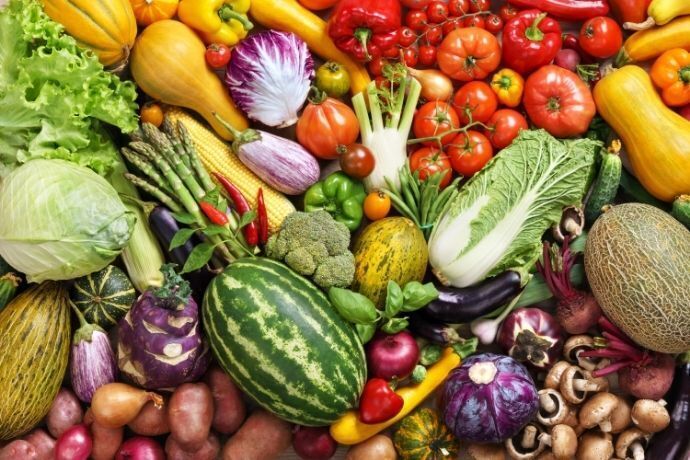
It is not always easy to include healthy food in the routine. A great difficulty is to distinguish natural food from processed food, since many products try to deceive us with the word "healthy" on the packaging.
However, having a routine of healthy habits brings many health benefits, ranging from the body to the mind. Natural foods are very powerful, able to prevent diseases and help in the treatment of illnesses such as high blood pressure, diabetes, anxiety, and even depression.
Therefore, it is worth investing some of your time in healthy preparations, using only fresh or minimally processed ingredients. Your health will thank you.

